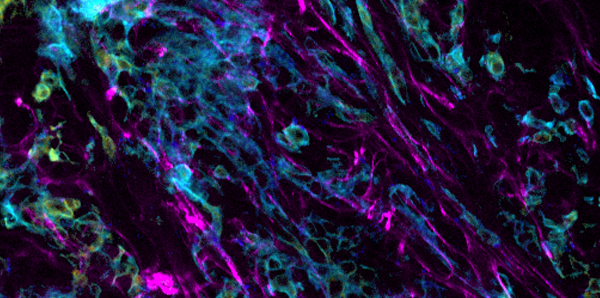
Mapping the Proteomic Landscape of Pancreatic Cancer: Prognostic Insights and Subtype Stratification
Pancreatic cancer is one of the most aggressive cancers, with limited options for early detection and a lack of reliable biomarkers to guide treatment.
At ProCan®, we are working to change that by applying large-scale tissue proteomics to uncover new biology and translate it into clinically meaningful tools.
In this study, we built on the current knowledge of pancreatic cancer by:
🔬 Identifying a novel 20-protein diagnostic panel with potential utility for screening and early detection.
🧬 Defining four novel proteomic subtypes that go beyond existing genomic classifications, each linked to distinct prognostic outcomes.
📊 Developing and externally validating an 18-protein risk score that independently predicts survival and recurrence, outperforming conventional clinical variables.
🌐 Integrating proteomics with COSMIC mutational signatures and homologous recombination deficiency (HRD) status, uncovering immune- and stroma-associated pathways that could inform therapeutic strategies.
This is another step in demonstrating the value of ProCan®’s unique proteomic platform for advancing precision oncology. By adding a proteomic dimension to pancreatic cancer research, we aim to refine risk stratification, inform therapeutic development, and ultimately improve patient outcomes.
Dr Adel Aref was lead author on this work that involved the ProCan® team (Jason Grealey, Asim Anees, PhD., Zainab Noor, Peter Hains, A. K. M. Azad, Mohashin Pathan, Qing Zhong), with guidance from Professor Roger Reddel, and support from Children's Medical Research Institute.
This work would not have been possible without the outstanding collaboration with the Australian Pancreatic Cancer Genome Initiative (APGI), led by Prof. Anthony Gill, and the invaluable contributions of all our collaborators.
Article sourced from the ProCan program at Children's Medical Research Institute. Original research article available through American Association for Cancer Research Journals, which you can find here.
.png)
.png)
